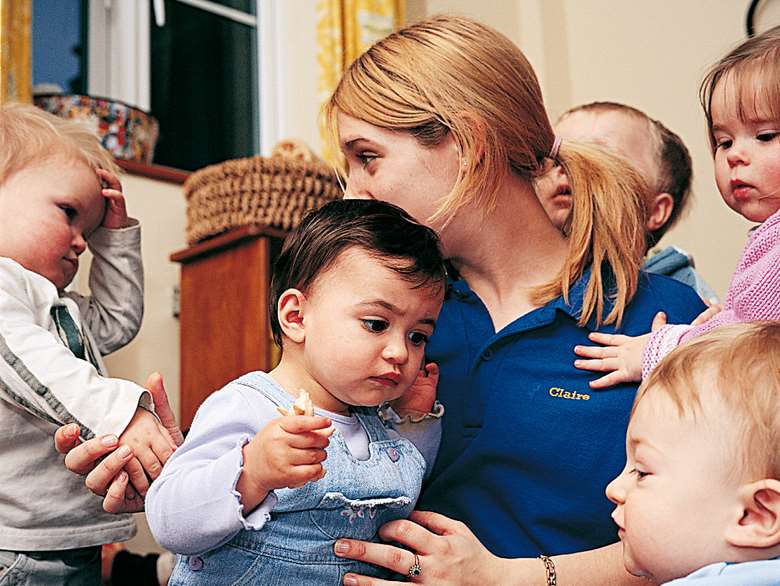Councils prioritise reception classes over early years care
Gabriella Jozwiak
Wednesday, May 8, 2013
Children could miss out on their entitlement to free early years care as local authorities prioritise primary school places to meet a rise in demand, an education union has warned.

Deborah Lawson, general secretary of Voice, raised the concerns following news that nursery schools attached to primary schools in two separate local authorities are to be closed to make room for reception classes.
Greville Primary School in Ashtead, Surrey, announced its nursery school will close in July in time to convert it into a second reception class on the site.
In a similar move, Southfields Nursery at Southfields Primary School in Peterborough will also convert to accommodate school starters in September.
The shortage of primary school places, largely caused by a population bulge, is expected to top 250,000 by 2014 according to figures published in March by the National Audit Office.
However, the closures come at a time when local authorities are also trying to expand early years provision to provide disadvantaged two-year-olds with free childcare, as part of a government scheme.
Lawson said this combination of factors was putting pressure on local authorities’ ability to build capacity within early years settings.
“Expanding the free entitlement to early education to some two-year-olds, although welcome, was always going to put pressure on early years places, especially in areas of high demand,” said Lawson.
“The fact that this is happening at a time of increased primary pupil numbers is added pressure when further great changes are proposed for the early years and childcare sector, not all of which are welcome.”
“Without realistic capital investment in early years and school places, this situation may not be resolved, leaving children and families without access to free early education,” said Lawson.
Lawson said the shortages would have long-term detrimental effects on children.
“This loss of places will be felt most severely in the most disadvantaged areas and could have an impact on children's readiness for school if there isn't sufficient capacity in the local area to accommodate them and enable them to take up their full entitlement,” she said.
From September, 130,000 more children will be entitled to 15 hours of free childcare a week, rising to 260,000 by September 2014.
According to figures collected by Achieving Two Year Olds, a national support programme funded by the Department for Education, about 55,000 childcare places across England were yet to be located in time for the September roll-out.
Jill Rutter, research manager at the Family and Childcare Trust, said the FOI figures were concerning and tallied with its own research that showed a shortage of places being created in London.
“Most local authorities are doing their best, but there will be gaps in places for two-year-olds in September 2013 and very possibly in 2014,” said Rutter.
“It is particularly difficult to find places in poorer areas where, traditionally, there are fewer nursery places.”
A DfE spokeswoman said the department was "working to ensure that providers have enough places and that parents know about this offer, which will help give their young children the best start in life."
"Through the Achieving Two Year Olds programme we are giving councils and providers support to make sure they have enough capacity for early learning for two year olds, encouraging parental demand, and improving the quality of provision," said the spokeswoman.
"Already some 70,000 children are benefiting from this investment in early learning for two year olds.”




